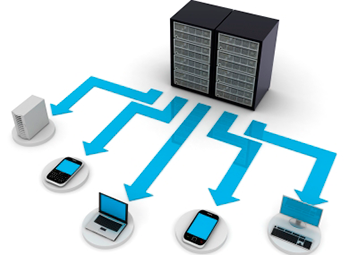The On-Premise ERP’s Forte

Introduction
At a time when ERP oriented writings and media interactions are all about the nuances and multifaceted advantages of On-Cloud ERP, a write up on the edge of On-Premise ERP is quite odd. Odd as it might seem, a few perennially existent industry workflow attributes, render the On-Premise ERP implementation irreplaceable. Among them, the 4 most trivial, yet striking industrial requirements, which deem the On-Premise ERP to be more relevant than the On-Cloud ERP for the contemporary business and market scenarios, are:Unique Workflow Support
For many organizations, the ability to customize their ERP to befit their specific needs and requirements is paramount. This is true in the case of niche industries with unique workflow requirements, like Facilities Management, Health Care, Catering, etc. Such Industries can be better addressed by On-Premise ERP solutions, which are generally easier to customize as they typically come with source code that can be fully modified. Over a period of time the ERP solutions, thus, customized and implemented get almost absorbed into the workflow and mature into feature rich solutions that stay unmatched by any On-Cloud implementation by all standards.On-Cloud ERP is not totally dedicated to the Organization using it on a periodical subscription based revenue system, thus, depriving the organization of the liberty to customize the system to perfectly align with its workflow. In most cases, organization specific large scale customizations are not supported by the SaaS platform from which On-Cloud ERP solutions are offered. Expert views confirm that shorter implementation times for On-Cloud ERP solutions are largely a result of the minimal scope for customization.
Total Control over Workflow
On-Premise ERP implementation empowers the company owners with absolute ownership rights over the ERP. This furnishes unlimited access to real-time role-specific business process information to business owners, management, and staff; at any time, from anywhere and on any device.Enabled by such luxury to information the top level management of any organization can have clear Visibility into the real-time course of their business and make amends to lapses even before the adverse results of such lapses could surface; thereby curbing all opportunities of being caught unawares by business adversities leading to last minute indecision or wrong decision.
With such Visibility, businesses can further the progress of its workforce to dig deeper into the facts and reach new heights even before its competitors, without an On-Premise ERP advantage, could think about the possibilities of such heights.
Scope for Learned and Timely Assimilation of Digital Nuances
Businesses are slow to adopt new features and updates as it takes the time to analyze and understand the pros and cons of upgrades/updates, and confirm if the new features are in the right mode and version to be imbibed into the existing software with minimal attrition and maximum benefits.Businesses fitted with On-Cloud ERP solution lose the power to choose and upgrade its ERP as all decisions in this accord are made by the Vendor. On the other hand, complete ownership of the license, software, and IT infrastructure gives the organizations implemented with On-Premise ERP solution, the liberty of time to decide, choose, and incorporate the suitable latest technological advances to its ERP.
The scope given to an Organization to make learned technological decisions in its own pace to incorporate digital nuances into its existing ERP software makes the On-Premise ERP solution, the hot choice of businesses when it comes to efficient and contemporary digitized-market-presence.
Comprehensive Data Security
Dedicated centralized data repository installed and operated on the client’s premises, ensures high data security, as it is maintained and secured by the client in the client’s premises itself.On-Premise ERP is equipped to handle its client’s confidential business information like employee’s personal identity details, accounting and expenses, supply chain management logistics, and other business intelligence data with significant value to outside parties; with absolute diligence. Hosted on the client’s premises, On-Premise ERP, offers the client comprehensive control over data security, to the extent of defining the safety measures that govern the physical access of data; thus, providing complete autonomy over gaining and providing the right to usage of data.
Cloud ERP vendors have invested heavily in the best possible security systems, but that doesn’t remove the responsibility of businesses deploying On-Cloud ERP systems from understanding how its ERP data is secured and how the vendor plans to make it happen. Despite assurances on data security and the time taken to consider the assurances, businesses with On-Cloud data storage are almost always prone to be anxious and concerned about data security issues.
Conclusion
All discussions preceding this section do not strive to prove On-Cloud ERP to be in the wrong. With its own unmatched advantages like the much-reduced upfront investment; absolutely minimal expense on IT infrastructure, electricity, upgrades, and maintenance; Internet powered integration and remote access facility; SaaS platform; etc; On-Cloud ERP solution is definitely a boon to a plethora of business processes across a multitude of Industry types.The crux of this blog is to register the undying relevance of On-Premise ERP, which always has the flexibility and provision to incorporate a hybrid On-Cloud solution when and where required. Thus, when deciding on ERP implementation, in case if the budget is small and there is not a great need for customization, On-Cloud ERP solution serves better; but, if there is a provision of a bigger budget with the need for customization being crucial, On-Premise ERP is always the best.
